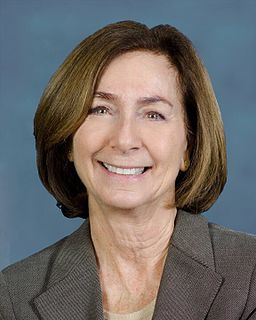| Elections in Florida | ||||||||||||||
|---|---|---|---|---|---|---|---|---|---|---|---|---|---|---|
 | ||||||||||||||
| ||||||||||||||
| ||||||||||||||
The Florida Election Commission (FEC) is an organisation set up in 1973 to enforce campaign finance laws in the United States' state of Florida. [1] "The commission is composed of nine members appointed by the governor." [1]
| Elections in Florida | ||||||||||||||
|---|---|---|---|---|---|---|---|---|---|---|---|---|---|---|
 | ||||||||||||||
| ||||||||||||||
| ||||||||||||||
The Florida Election Commission (FEC) is an organisation set up in 1973 to enforce campaign finance laws in the United States' state of Florida. [1] "The commission is composed of nine members appointed by the governor." [1]
In the United States, a political action committee (PAC) is a 527 organization that pools campaign contributions from members and donates those funds to campaigns for or against candidates, ballot initiatives, or legislation. The legal term PAC has been created in pursuit of campaign finance reform in the United States. This term is quite specific to all activities of campaign finance in the United States. Democracies of other countries use different terms for the units of campaign spending or spending on political competition. At the U.S. federal level, an organization becomes a PAC when it receives or spends more than $1,000 for the purpose of influencing a federal election, and registers with the Federal Election Commission (FEC), according to the Federal Election Campaign Act as amended by the Bipartisan Campaign Reform Act of 2002. At the state level, an organization becomes a PAC according to the state's election laws.

The Federal Election Commission (FEC) is an independent regulatory agency of the United States whose purpose is to enforce campaign finance law in United States federal elections. Created in 1974 through amendments to the Federal Election Campaign Act, the commission describes its duties as "to disclose campaign finance information, to enforce the provisions of the law such as the limits and prohibitions on contributions, and to oversee the public funding of Presidential elections."

The Bipartisan Campaign Reform Act of 2002 is a United States federal law that amended the Federal Election Campaign Act of 1971, which regulates the financing of political campaigns. Its chief sponsors were senators Russ Feingold (D-WI) and John McCain (R-AZ). The law became effective on 6 November 2002, and the new legal limits became effective on January 1, 2003.
A 527-organization or 527 group is a type of U.S. tax-exempt organization organized under Section 527 of the U.S. Internal Revenue Code. A 527 group is created primarily to influence the selection, nomination, election, appointment or defeat of candidates to federal, state or local public office.

The Federal Election Campaign Act of 1971 is the primary United States federal law regulating political campaign spending and fundraising. The law originally focused on increased disclosure of contributions for federal political campaigns. The legislation was passed by the 92nd Congress and signed into law by President Richard Nixon on February 7, 1972.
McConnell v. Federal Election Commission, 540 U.S. 93 (2003), is a case in which the United States Supreme Court upheld the constitutionality of most of the Bipartisan Campaign Reform Act (BCRA), often referred to as the McCain–Feingold Act.

Robert Ernest Andrews is an American politician who served as a U.S. Representative for New Jersey's 1st congressional district from 1990 to 2014. The district included most of Camden County and parts of Burlington County and Gloucester County.
Campaign finance in the United States is the financing of electoral campaigns at the federal, state, and local levels. At the federal level, campaign finance law is enacted by Congress and enforced by the Federal Election Commission (FEC), an independent federal agency. Although most campaign spending is privately financed, public financing is available for qualifying candidates for President of the United States during both the primaries and the general election. Eligibility requirements must be fulfilled to qualify for a government subsidy, and those that do accept government funding are usually subject to spending limits on money.
Bradley A. Smith is the Josiah H. Blackmore II/Shirley M. Nault Professor at Capital University Law School in Columbus, Ohio. He previously served as Commissioner, Vice Chairman and Chairman of the Federal Election Commission (FEC) between 2000 and 2005. He is best known for his writing and activities opposing campaign finance regulation.

Ellen L. Weintraub is an American attorney who serves as a Commissioner on the Federal Election Commission.
Federal Election Commission v. Wisconsin Right to Life, Inc., 551 U.S. 449 (2007), is a United States Supreme Court case in which the Court held that issue ads may not be banned from the months preceding a primary or general election.
In the 2008 United States presidential election, fundraising increased significantly compared to the levels achieved in previous presidential elections.
Davis v. Federal Election Commission, 554 U.S. 724 (2008), is a decision by the United States Supreme Court, which held that Sections 319(a) and (b) of the Bipartisan Campaign Reform Act of 2002 unconstitutionally infringed on a candidate's First Amendment rights.
Citizens United v. Federal Election Commission, 558 U.S. 310 (2010), was a landmark decision of the Supreme Court of the United States concerning campaign finance. The Court held that the free speech clause of the First Amendment prohibits the government from restricting independent expenditures for political communications by corporations, including nonprofit corporations, labor unions, and other associations.

Hillary: The Movie is a 2008 political documentary about United States Senator and presidential candidate Hillary Clinton. It was produced by the conservative non-profit organization Citizens United. The film was scheduled to be offered as video-on-demand on cable TV right before the Democratic primaries in January 2008, but would have been classified as "electioneering communication", which was made illegal under the Bipartisan Campaign Reform Act, by the Federal Election Commission. The producers went to U.S. District Court for the District of Columbia to get a declaration that they could show their movie and promotional ads for it despite BCRA. This case was titled Citizens United v. Federal Election Commission and its final decision at the U.S. Supreme Court resulted in a major change in campaign finance law.
McCutcheon v. Federal Election Commission, 572 U.S. 185 (2014), was a landmark decision of the US Supreme Court on campaign finance. The decision held that Section 441 of the Federal Election Campaign Act (FECA), which imposed a limit on contributions an individual can make over a two-year period to national party and federal candidate committees, is unconstitutional.

Ann Miller Ravel is an American attorney who was a Democratic Commissioner on the Federal Election Commission (FEC), an independent regulatory agency created by Congress to administer and enforce campaign finance law.
Fundraising plays a central role in many presidential campaigns, and is a key factor in determining the viability of candidates. Money raised is applied for the salaries of non-volunteers in the campaign, transportation, campaign materials, media advertisements and other contingencies. Under United States law, officially declared candidates are required to file campaign finance details with the Federal Elections Commission (FEC) at the end of every calendar month or quarter. Summaries of these reports are made available to the public shortly thereafter, revealing the relative financial situations of all the campaigns.

The 2018 United States Senate election in Florida was held on November 6, 2018, alongside a gubernatorial election, elections to the U.S. House of Representatives and other state and local elections. Incumbent Democratic Senator Bill Nelson ran for re-election to a fourth term, but was very narrowly defeated by Republican Governor Rick Scott. This was the closest Senate race in the state's history.

FEC v. National Conservative PAC, 470 U.S. 480 (1985), was a decision by the Supreme Court of the United States striking down expenditure prohibitions of the Federal Election Campaign Act of 1971 (FECA), which regulates the fundraising and spending in political campaigns. The FECA is the primary law that places regulations on campaign financing by limiting the amount that may be contributed. The Act established that no independent political action committee may contribute more than $1,000 to any given presidential candidate in support of a campaign.
This article relies too much on references to primary sources .(June 2009) (Learn how and when to remove this template message) |
Prepared for The Florida House of Representatives by The Committee on Election Reform
| This Florida elections-related article is a stub. You can help Wikipedia by expanding it. |